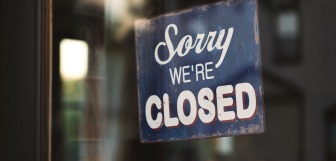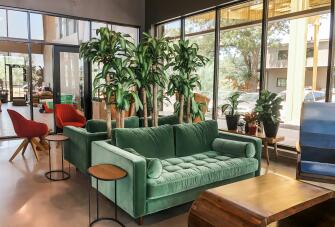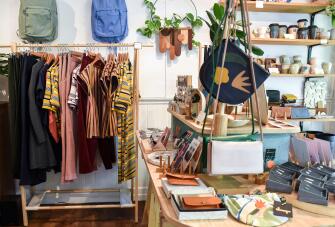Is the Coronavirus Accelerating the Retail Apocalypse?
Thousands of businesses closed their doors in 2017 in what was deemed the “Retail Apocalypse.” Years later, the COVID-19 pandemic is wreaking havoc on those businesses that survived the initial wave of closings.
Traditional brick-and-mortar stores are losing customers as more and more shoppers turn to online retailers, with over 15,000 stores closing since 2017. However, many shops were able to withstand the initial waves of the retail apocalypse by offering new services like in-store pickup or downsizing to maintain profitability.
Adapting to new shopping behaviors have been a worthwhile investment for many stores, but have these efforts been in vain?
How Covid-19 Changed Everything
If we only go back to January 2020, some people were discussing the possibility that the retail apocalypse had ended. It seemed like the market had stabilized somewhat and that stores had found successful business models to cope with the rise of e-commerce.
Unfortunately, the Covid-19 pandemic disrupted the market and caused countless businesses to close. The retail apocalypse seemed like it was in the rearview mirror, but now with thousands of businesses closing, it is back and stronger than ever before.
No place is safe
Some brands saw little-to-no losses during the first waves of store closings, but now they are fighting to stay afloat. For example, Lululemon saw year after year growth from 2017 to 2020, but the brand just had its first sale in three years because of the coronavirus. Over 113 companies have filed bankruptcy since the pandemic began, showing that even industry staples are struggling to cope with the shift in the market.
E-Commerce exploded
Online spending already was booming, but growth was consistently near the same percentage year over year. In 2020, though, online spending has increased by 77% since last May. Vivek Pandya, Adobe’s Digital Insights Manager, said this type of growth accelerated online spending by four to six years!
What does this mean for businesses? Well, the saying “The future is now” has never been more appropriate! The market has taken a giant leap forward, and companies need to get with the times as soon as possible. A retail shop must work faster to achieve anything listed in its five-year plan to stay competitive.
Discount store dynasties
Prior to the pandemic, stores like Dollar General were already growing, and the pandemic has not been able to stop this trend. In the first quarter of 2020, the store increased sales by 27.6% and opened 250 new stores.
Likewise, Dollar Tree CEO Gary Philbin stated the company saw a bump in sales due to the pandemic. He attributes this to the stimulus checks, but many shoppers visited the store for cleaning products and other items they need to stay safe at home. He theorizes that guests are turning to them for low-cost goods and that many of their shoppers are visiting the store for the first time due to the stressed economy.
Real estate and traditional retail heading
The virus’s effects can be more far-reaching than most people realize, and the retail apocalypse is now hitting major international markets. For example, in New York City, the retail industry brings in $251 billion annually from the millions of visitors the city receives. However, this major hub is now becoming unsustainable.
The flagship Victoria’s Secret location in Manhattan has not paid its rent in four months, and the company states that it will take years for New York’s retail market to reach its pre-Covid levels. Other large brands, such as Neiman Marcus, are also filing for bankruptcy and closing locations in New York City. If these trends persist, the nearly 1 million retail workers in the city will be met with some tough choices. Will they be able to find work in this former shopping hub?
How Businesses Can Survive
While almost all business sectors are feeling the effects of the pandemic, there are ways for shops to stay afloat during the retail apocalypse.
Offer Contactless Payment
Most American shoppers now use contactless payment, and this percentage will only grow as more credit card companies offer cards with this technology. Retail shops cannot afford to stick to a “cash only” model since this alienates over half of shoppers.
Contactless payment offers a few benefits, but convenience and cleanliness are two main concerns of many shoppers. Even after the pandemic ends, people will likely continue looking for ways to minimize germ exposure. If your point of sale system does not accept contactless payments, shoppers may think twice about buying from you.
Offer a blended shopping experience
Buying online is convenient, but 2-day shipping cannot compete with in-store pickup. If your store is not online, you should create a website that allows shoppers to, at the very least, see your inventory. However, providing online shopping should be your goal since this will help you do business even when no one is at the store.
Once you implement this process, you can offer a blended shopping experience. Buyers can pay for items online and then pick up their goods from the curb. Mask mandates and other social distancing regulations may make some shoppers tired of going to the store, so giving them a way to shop without donning a mask is a win for everyone.
Make Customers Feel Safe and Welcome
After spending months in lockdown, people may not be comfortable returning to stores. Your shop can welcome customers by creating a clean space that is warm and inviting. Consider these tips for creating a socially distanced store.
After preparing your store, use your customer retention software to invite past customers to check out your shop by sending out emails or text messages. With the right loyalty program, you can offer discounts and other incentives to get guests through the door.
Add Value with Partnerships
Kohls recently partnered with Amazon to allow guests to return Amazon purchases at their store. This relationship may seem odd, considering that both companies offer retail goods and are competitors. Does this not hinder their profit potential? Perhaps not.
Kohls can gain quite a bit from this partnership. When Amazon shoppers return their products at Kohls, they receive a discount to shop at the store. If they returned an item because it was the wrong size or didn’t work as intended, they can then use this discount to buy it at Kohls.
You don’t have to partner with competitors to add value. Perhaps your retail store can work with a local cafe and create separate spaces for shopping and relaxing. Think about what your typical customer enjoys, and try to cater to those needs.
Keep your store competitive with the latest technology
No matter what you do, it is nearly impossible to survive the retail apocalypse without a modern point of sale system. From processing payments and tracking sales to managing inventory and onboarding new staff, a POS can provide everything a retail store needs to operate.
Epos Now offers several POS solutions that can match any business model. Speak with a consultant today to see how your store can use our technology.




